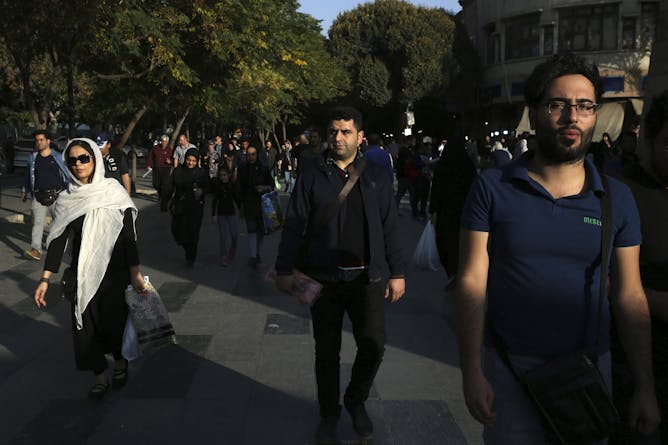Editor's note
|
|
After declining for 15 years, the number of people who don’t have enough to eat – some 815 million people, or 11 percent of the global population – rose in 2016, according to a recent United Nations report. The main culprits were climate change and armed conflict, explains agriculture researcher Leah Samberg, who also spotlights a solution: providing more resources for small-scale farmers in rural areas.
Pundits differ on how to interpret Trump’s approach to the Iranian nuclear deal. But Nancy Gallagher, director of the Center for International and Security Studies at the University of Maryland, shares public opinion data from on the ground in Iran that shows all of these interpretations “rest more on wishful thinking than a solid understanding of politics in Iran.”
And computer scientist Seth Copen Goldstein looks at the idea behind a forthcoming congressional proposal to combat “fake news” – based on lessons dating back to the presidential campaign of 1840.
|
Jennifer Weeks
Editor, Environment and Energy
|

|
|
Top stories
|

Smallholder agriculture in southern Ethiopia. Smallholder farmers are particularly vulnerable to food insecurity.
Leah Samberg
Leah Samberg, University of Minnesota
According to the UN, world hunger is rising for the first time in 15 years. The answer is not only growing more food, but also buffering small-scale farmers against climate change and armed conflicts.
|

People walk around the old main bazaar of Tehran, in Iran, Saturday, Oct. 14, 2017.
AP Photo/Vahid Salemi
Nancy Gallagher, University of Maryland
Surveys of Iranian public opinion from the University of Maryland suggests that Trump's strategy on the nuclear deal – no matter how you interpret it – is based on wishful thinking.
|

The American people used to get more information in common.
sirtravelalot/Shutterstock.com
Seth Copen Goldstein, Carnegie Mellon University
Micro-targeted online advertising has destroyed how Americans share experiences and a common knowledge base. The fix for this societal and political problem is as simple now as it was in 1840.
|
Arts + Culture
|
-
Virginia García Beaudoux, University of Buenos Aires
TV commercials continue to traffic in outmoded gender roles, relegating women to the home. A media scholar explains how these stereotypical portrayals can fuel workplace harassment by powerful men.
-
Roger Pielke Jr., University of Colorado
After decades of continuous growth, participation rates have started to decline. What does it mean for the future of the sport?
|
|
|
|
|
|
Health + Medicine
|
-
Matthew Mclaughlin, University of Newcastle; John Bellettiere, University of California, San Diego; Natasha Bliss, San Diego State University
Dropping old, bad habits is hard, but starting new, good ones may not be so difficult. Or so a recent study suggests. Read how a simple sign at an airport made a difference.
|
|
|
|
Trending on site
|
-
Cynthia Hooper, College of the Holy Cross
The country's state-run media outlets have been quick to denounce any election meddling talk as anti-Russian hysteria. So what's behind the shift in tone?
-
Saul Cornell, Fordham University
A leading historian of constitutional thought says the contemporary Second Amendment debate is founded on serious misunderstandings.
-
Rick Eckstein, Villanova University
In a system that's far better at identifying the best payers than finding the best players, the pipeline of talent gets choked out by costly tournament and team fees.
|
|
|
|
| |
| |
|
|